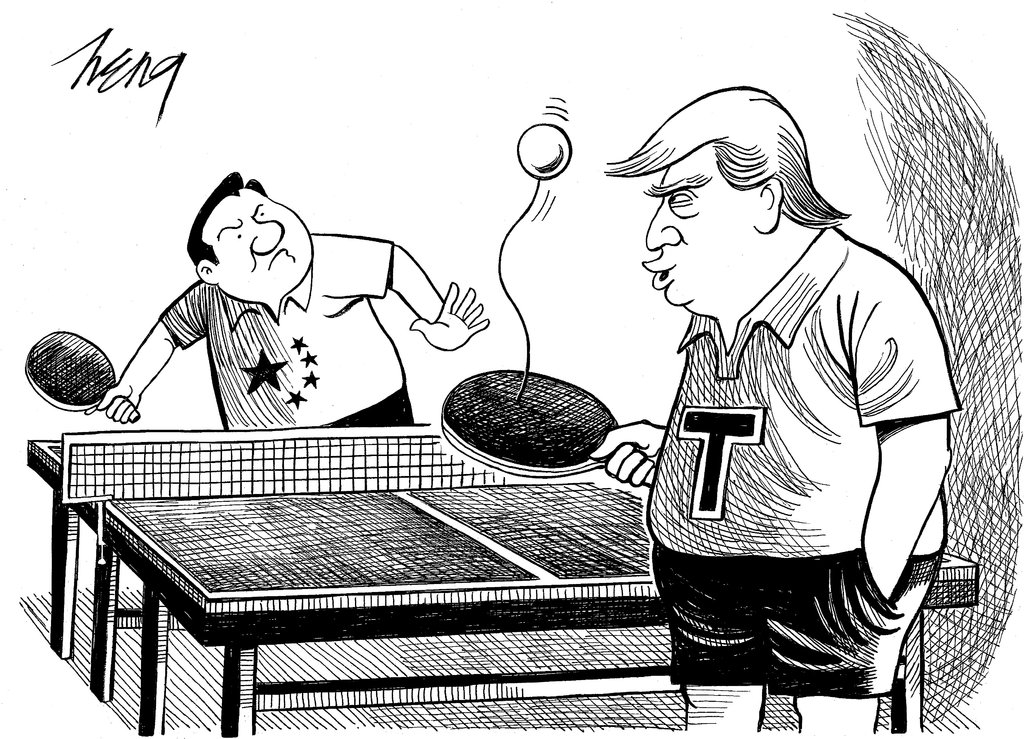Once again, the fate of the world revolves around the axis of a ping-pong ball. It has been nearly fifty years since Ping-Pong Diplomacy rewrote the rules of international engagement. The sports-themed public relations coup between President Nixon and Chairman Mao Zedong changed history, as the two ideologically opposed superpowers agreed to work together for mutual political and economic benefit. When relation between the two nations were officially normalized in 1979, Nixon remarked that the influence of Western capitalism and democracy would prevent China from becoming the world's "Frankenstein monster." This delicate balance has been upset, however, by recent provocations between the Trump administration and Chinese President Xi Jinping. This week, the US abruptly ordered the closure of Chinese consulate in Houston. Citing unsubstantiated accusations of intellectual property theft, Chinese officials were given just 72 hours to vacate their consulate. Chinese foreign ministry spokesman Wang Wenbin called the action an “outrageous and unjustified move." Florida Senator Marco Rubio dusted off Joseph McCarthy's Red Scare playbook from the 1950s, calling China's Houston office the "central node of the Communist Party’s vast network of spies and influence operations in the United States." China, in turn, called the claim "malicious slander." China then retaliated by closing the US consulate in Chengdu, Sichuan province, calling it a “legitimate and necessary response.” China's official rationale was the proportionately unsubstantiated allegation of "infiltration and interference activities" by US diplomats. The stakes in this global gamesmanship are high. Besides $650 billion in annual US-China trade, there is also the small matter of a fragile world peace in hanging in the balance. With both superpowers rattling their naval sabers in the shipping lanes of the South China Sea, the ongoing "trade war" has the real and present danger of escalating into a "war war." What can be done in the face of such international hostility? The answer might well be a throwback. While Houston is currently a source of tension, it is also scheduled to host the 2021 World Table Tennis Championships. The US will host the prestigious tournament for the first time in the International Table Tennis Federation's 94-year history. The Chinese Table Tennis Association helped the US secure the championships in order to celebrate the 50th anniversary of Ping-Pong Diplomacy. With the Chinese team demonstrating their unrivaled skills in the US for the first time in half a century, the stage is set for another round of sports diplomacy. The ball has grown by two millimeters in diameter since the last time Ping-Pong Diplomacy saved the world. So, too, has the geopolitical complexity of the issues at stake, although its exact dimensions are more difficult to quantify. In any case, it may be our best hope for peace that a novel diplomatic contrivance from history could perhaps, with some delicate re-engineering and a little luck, still be functional.
More at Modern Diplomacy
